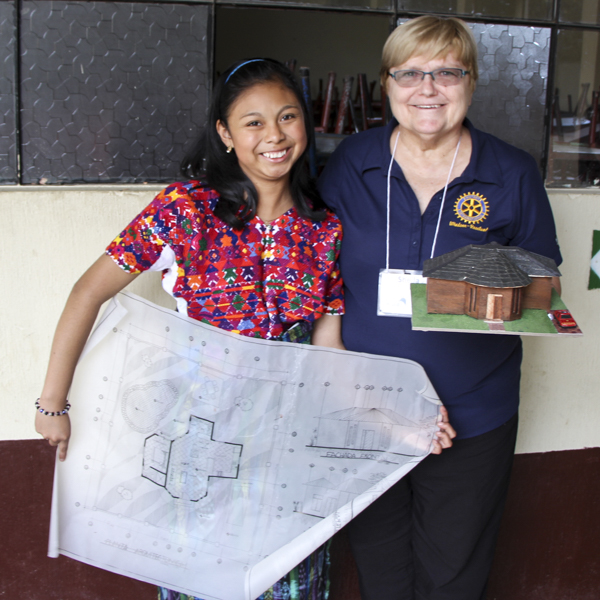
John Farrow introduced Greg Podmore. Greg is a member of the Rotary Club of Grand Prairie Alberta, and his club has been involved in a large Guatemala literacy project since 2004. https://www.guatemalaliteracy.org/
Greg told us about the high need for their program among indigenous children in Guatemala. Four out of five are illiterate. Parents cannot afford to send them to school. This is a large grass roots project that receives $200,000 annually from the Rotary Foundation. There are also large donations from around the world. Rotary works with an organization in Guatemala called Cooperative for Education. It all started in Cincinnati by two young men who were teachers in Guatemala who thought that text books could be provided to students there. 600 Rotary Clubs around the world are now involved. It started with text books, and then expanded to computers. Children find the books to be exciting. One third of indigenous people cannot read or write. Teachers receive two years of training. First, a story is read to the children. Then when they understand it, they take the story back and put on puppet shows or act out the stories. Later they learn to write their own stories.
At first, the adults didn’t understand why their children needed this. The books include learning about math, social studies, science and Spanish. 60% of mid level jobs require a knowledge of computers. 95% of the individuals who go through the program are able to get employment.
There is a sustainability plan, and the schools also put in money.
RISE is a youth development program that starts in grade 7. Students often leave school after grade 6. Students are chosen in grades 5 or 6 for RISE. They look for tough and determined kids, and not necessarily the brightest ones. They are also children whose parents cannot afford their education. Without this program, 95% will never finish high school. They will go to work farming like their parents did.
The Rise program is much more than books. They gather monthly for training in things like interviewing for jobs. They also tour places where employment may be located. They come together to see different ways to improve their communities. Each student has a counsellor. They learn about good citizenship, and volunteering in their communities to help needy people. It’s all about breaking the cycle of poverty.
How can you get involved? Rotary Clubs can sponsor a class or a student in the Rise program. Canada has also matched the TRF grants.
The next trip to Guatemala is planned for February 2021.
Greta spoke about attending a Friendship Exchange in Guatemala. John Gale spoke about a local group of Rotarians that attends the Uniendo Conference in Central America, and asked whether this project is linked to the Guatemalan stove project. (They are not.)
The question was asked whether they are mostly dealing with just rural populations or also cities. They are involved in both, but mainly in the western highlands.
Heather Nogrady offered our thanks with a virtual loaf of bread. It was interesting to hear about how this project evolved, and to see photos of children who were so obviously happy and proud, and that said a lot.

